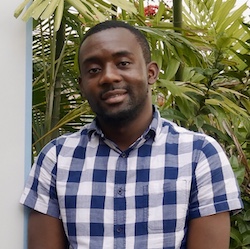Bio
Tamuka Chekero, a Zimbabwean national, is a PhD student in anthropology at the University of Cape Town (UCT), South Africa. He holds an MSc in social anthropology (UCT), a BSc Honors degree in social anthropology (Great Zimbabwe University), Zimbabwe. His current research, based in Cape Town, looks at how people who have crossed and re-crossed national borders form relationships, make and maintain connections through conviviality. The project interrogates systems of blockage in the mobility of people, ideas, and resources necessary to on-going world-making in Southern Africa. Chekero has worked as a researcher at New Somerset Hospital in Cape Town where he researched on Clinical Audit of Post-Operative Comfort in adults. He has also been a research assistant in the Primary Health Care Directorate Department at the University of Cape Town. His recent coauthored publication explores forms of mutuality and conviviality between Shona migrants from Zimbabwe and Tsonga-speaking South Africans living in Giyani, South Africa. It explores ways in which the Shona concept of hushamwari (translated as “friendship”) and the commensurate xiTsonga category of kuhanyisana (“to help each other to live”) allow for conviviality. His research interests include mobility, migration, development, forced displacement, urban livelihoods, obstetrics, and reproductive healthcare.

